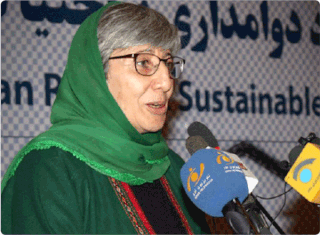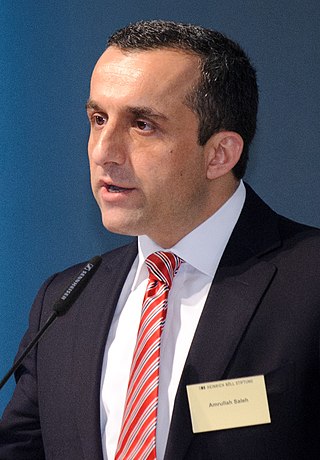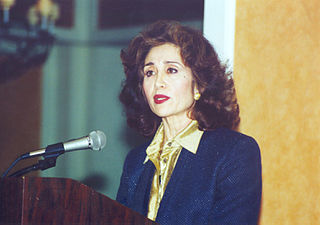
Afghanistan, officially the Islamic Emirate of Afghanistan, is a landlocked country located at the crossroads of Central Asia and South Asia. Referred to as the Heart of Asia, it is bordered by Pakistan to the east and south, Iran to the west, Turkmenistan to the northwest, Uzbekistan to the north, Tajikistan to the northeast, and China to the northeast and east. Occupying 652,864 square kilometers (252,072 sq mi) of land, the country is predominantly mountainous with plains in the north and the southwest, which are separated by the Hindu Kush mountain range. Kabul is the country's largest city and serves as its capital. As of 2021, Afghanistan's population is 40.2 million.

The economy of Afghanistan is listed as the 124th largest in the world in terms of nominal gross domestic product (GDP), and 102nd largest in the world in terms of purchasing power parity (PPP). With a population of around 41 million people, Afghanistan's GDP (nominal) stands at $14.58 billion as of 2021, amounting to a GDP per capita of $363.7. Its annual exports exceed $2 billion, with agricultural, mineral and textile products accounting for 94% of total exports. The nation's total external debt is $1.4 billion as of 2022.

The treatment of women by the Taliban refers to actions and policies by various Taliban regimes which are either specific or highly commented upon, mostly due to discrimination, since they first took control in 1996. During their first rule of Afghanistan (1996–2001), the Taliban were notorious internationally for their misogyny and violence against women. In 1996, women were mandated to wear the burqa at all times in public. In a systematic segregation sometimes referred to as gender apartheid, women were not allowed to work, nor were they allowed to be educated after the age of eight. Women seeking an education were forced to attend underground schools, where they and their teachers risked execution if caught. They were not allowed to be treated by male doctors unless accompanied by a male chaperone, which led to illnesses remaining untreated. They faced public flogging and execution for violations of the Taliban's laws.

Sima Samar is an Afghan woman and human rights advocate, activist and social worker within national and international forums, who served as Minister of Women's Affairs of Afghanistan from December 2001 to 2003. She is the former Chairperson of the Afghan Independent Human Rights Commission (AIHRC) and, from 2005 to 2009, United Nations Special Rapporteur on the situation of human rights in Sudan. In 2012, she was awarded the Right Livelihood Award for "her longstanding and courageous dedication to human rights, especially the rights of women, in one of the most complex and dangerous regions in the world."
The following lists events that happened during 2004 in Afghanistan.
Engineer Abdul Rahim was appointed the Afghan Communications Minister of the Afghan Interim Administration—the first post-Taliban government in 2002. Abdul Rahim was from the Tajik ethnic group.

Relations between Afghanistan and Tajikistan began in 1992. Afghanistan maintains an embassy in Dushanbe and a consulate in Khorugh. The current Afghanistan ambassador to Tajikistan is LTG. Mohammad Zahir Aghbar. Tajikistan maintains an embassy in Kabul and a consulate in Mazari Sharif, Faizabad and Kunduz. The current Tajikistan ambassador to Afghanistan is Sharofiddin Imom.

Dr. Hazrat Omar Zakhilwal is an Afghan politician who served as the President's Special Representative and Afghanistan's Ambassador to Pakistan from 2016 until 2018. He also served as Minister of Finance from 2009 to 2015. Since early 2019, Zakhilwal has been a key player in the IntraAfghan Dialogue for peace.

Amrullah Saleh is an Afghan politician who served as the first vice president of Afghanistan from February 2020 to August 2021, and acting interior minister from 2018 to 2019. He was the head of the National Directorate of Security (NDS) from 2004 to 2010.

Afghanistan has an embassy in Oslo. Norway has an embassy in Kabul.

Muhammad Yunus Nawandish was the Mayor of Kabul from after his appointment by Afghan President Hamid Karzai in January 2010. During his time in office the Mayor initiated an aggressive program of municipal improvements in streets, parks, greenery, revenue collection, environmental control, and solid waste management.

Afghanistan–Denmark relations refers to bilateral relations between Afghanistan and Denmark. Afghanistan is represented in Denmark through its embassy in Oslo, Norway. Denmark used to have an embassy in Kabul until it was closed in 2021. Denmark has 760 soldiers in Afghanistan, operating without caveat and concentrated in Helmand Province. Relations between the two countries are friendly. About 9578 Afghans live in Denmark.
2003 in Afghanistan. A list of notable incidents in Afghanistan during 2003

Sima Wali was one of the foremost Afghan human rights advocates in the world, serving as an international campaigner for the liberties and empowerment of refugee and internally displaced populations. She was the Chief Executive Officer of Refugee Women in Development (RefWID), Inc., a global non-profit organization that advocated for the civil rights of refugee women and girls fleeing from conflict and for their equitable reintegration into their societies. She was also the vice president of the Sisterhood Is Global Institute, the world’s first feminist think tank.

Suraya Dalil, is an Afghan physician and politician who served as Minister of Public Health from 2010 to 2014 and has been the country's Permanent Representative to the United Nations since November 2015.

Adela Raz is an Afghan politician who served as the last ambassador of the Islamic Republic of Afghanistan to the United States from July 2021 to February 2022. Raz was also the first woman to hold the office of Permanent Representative of Afghanistan to the United Nations.

Ajmal Ahmady is an Afghan-American economist and politician who formerly served as the Acting Governor of the Central Bank of Afghanistan, Da Afghanistan Bank, the Acting Minister of Commerce and Industry of Afghanistan, the Senior Economic Advisor to the President of Afghanistan, and represented Afghanistan on the Turkmenistan-Afghanistan-Pakistan-India (TAPI) natural gas pipeline.
Rangina Hamidi is an Afghan-American writer, educator, social activist, and politician. She is well known as an advocate for women's rights in Afghanistan and has engaged in various social projects to empower girls and women in Afghanistan. Hamidi has served as an education minister of Afghanistan, until the Taliban takeover. She was the first female education minister of Afghanistan. During the Afghanistan being taken over by the Taliban, she vowed to stay in Afghanistan and continue her humanitarian efforts by actively involving in empowerment of Afghan women. However, after several weeks, she fled with her family to Arizona.
On 15 August 2021, the city of Kabul, the capital of the Islamic Republic of Afghanistan, was captured by Taliban forces during the 2021 Taliban offensive, concluding the War in Afghanistan that began in 2001. The fall of Kabul provoked a range of reactions across the globe, including debates on whether to recognize the Taliban as the government of Afghanistan, on the humanitarian situation in the country, on the outcome of the War, and the role of military interventionism in world affairs.













